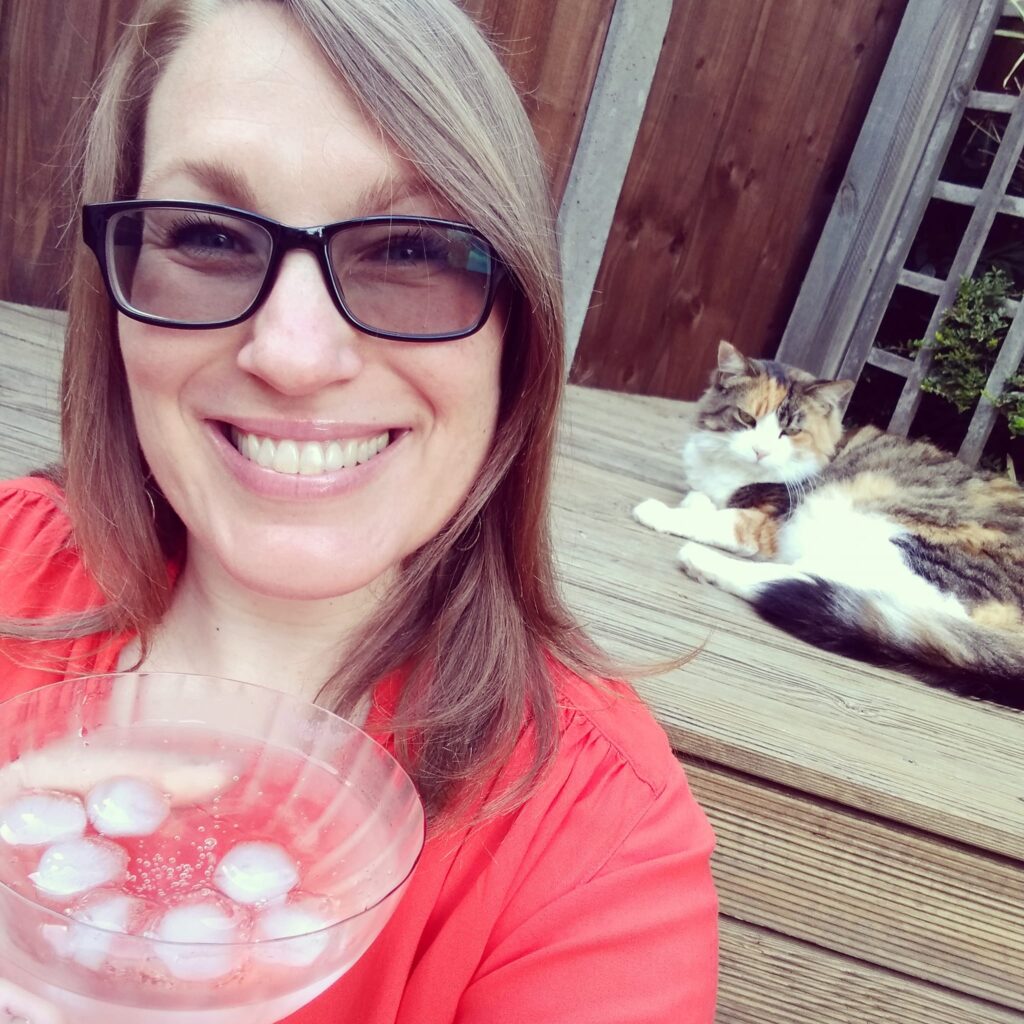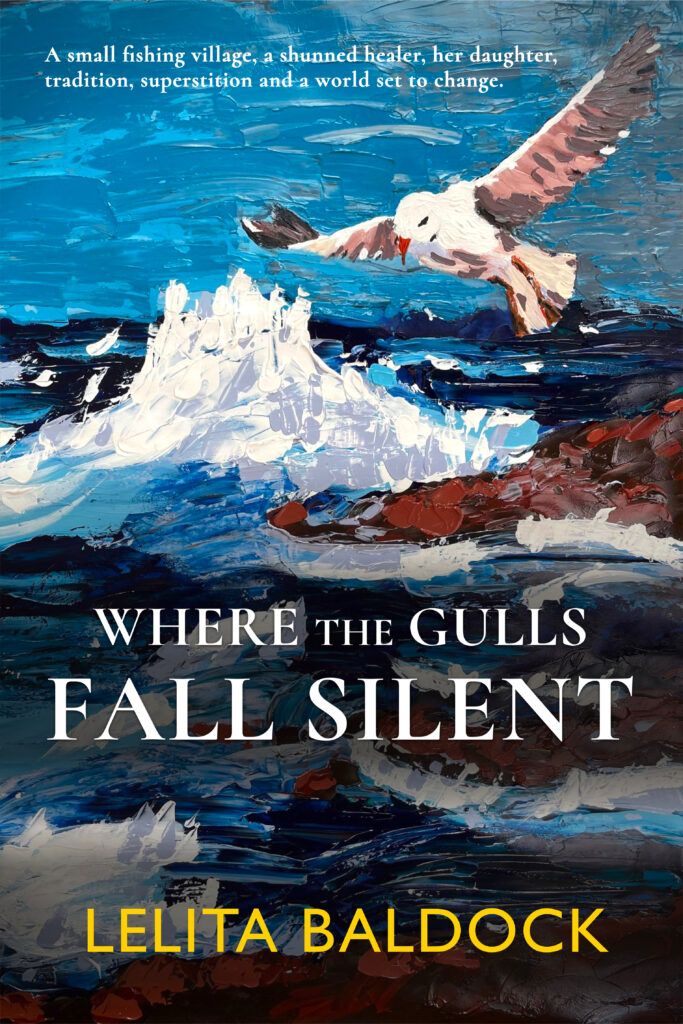

At what point do you think someone should call themselves a writer?
I think when you decide to call yourself a ‘writer’ is deeply personal. Years ago I attended a screen-writing seminar, and one presenter (notable as he wrote the screen play for Wolf Creek), said “you are only a ‘writer’ once you have been published.”
At first glance that seems a reasonable proposition. But this was said over 15 years ago, before the concept of self-publishing really took off. Did he include the self-published in his statement? And what about the millions of people who write just for themselves, as a hobby or pastime?
For me you are a writer when you decide you want to be a writer. Whether its keeping a dedicated diary or sharing poetry at an open mic night, self-publishing a self-help guide or traditionally publishing a fiction. If you write and want to keep writing, then you are a writer.
Do you prefer ebooks, printed books, or audiobooks most of the time?
For years I was a staunch printed book only girl. I grew up in a home that valued reading and my mother always had bookshelves full of books. As a child I loved running my hands along the rows of book spines on the shelves, picking a volume at random and settling down to read. This secret joy followed me to university where I would regularly get lost down the rows of literature just exploring what could be found.
My husband bugged me for years, saying I should get a kindle. But I refused. At length, he took matters into his own hands and bought me one as a surprise.
I haven’t looked back.
While nothing will ever top the joy of a printed book for me: the beauty of the cover and type-setting, the feel of turning the pages and sinking into something solid and substantial, the convenience of a kindle is hard to ignore. Now I can easily travel with not one but any number of books at my disposal to read. And when I finish a story in the middle of the night? I no longer have to wait until the book store opens the next day to buy my next read. I just download it straight to my kindle at any time of the day or night. Fantastic!
I remain wedded to reading, rather than audio-books. But who knows? I have been wrong before…
Have you ever traveled as research for your book?
I have had the great fortune to be able to travel to research every one of the novels I have written. This is largely a product of how I find inspiration. Often it is when in a new place, surrounded by a different culture and way of life that I find my creativity gets moving and story ideas come to me.
My most recent novel, Where the Gulls Fall Silent, is set on the coast of Cornwall in the 1800s. The events of the tale, the characters, traditions and superstitions of the story were directly drawn from my own experiences on holiday in Port Isaac and Port Gaverne. Walking the streets of the towns, talking with the locals and seeing the sweeping rugged coasts, I knew I had to write this place!
When it came time to write my 4th and upcoming novel, A Machine of Fingers, I knew I had to travel to the key locations from the story. That research took me to Nottingham, Greenwich, Calais, Chantilly, Paris and Lyon. Sounds exciting right? It is! Stay tuned!
How did you come up with the title for your book?
Where the Gulls Fall Silent is drawn from an old Cornish sailor tradition.
Coastal life in Cornwall was tough and dangerous. The men who sailed and fished in the stormy waters of the Atlantic risked accident and drowning as part of their very livelihood. So naturally many superstitions and beliefs grew up around the waters that hugged their village coastlines.
One such tradition says that when a seagull flies over the soul of a drowned sailor it will cease it’s call.
Given the events of my novel and its exploration of the tough and resilient people of Cornwall, this title fit just right.
How do you celebrate when you finish your book?
A big glass of wine and a week away from my computer. Writing is my passion and I throughly enjoy every moment of it. But crafting a novel can be intense and requires lots of time and energy, and some serious mental gymnastics to bring it all together. So as much as I adore the process, it does exhaust me. The end of draft one comes with a major sense of relief and achievement. And I choose to celebrate that fully.
But of course, there is still a long way to go, drafting, re-writing, editing, querying, publishing, promoting and so on and so on.
So rather than always thinking about how far left to go, I make a point of celebrating at every milestone and giving myself recognition for what I have achieved.
Writing a book is something to be proud of after all.
How do you develop your plot and characters?
I am an absolute planner. An idea for a story will pop into my head, or be inspired by a location or conversation with a friend, and I will go home and research extensively. Being a historical fiction author research is the cornerstone of my work. Without the historical facts and detail you can’t craft an effective and believable fiction. So first, detailed research.
From that the plot and characters develop quite naturally. I start by deciding on a set of key events that must take place along the story arc to drive the novel forward, then develop characters who fit the time and place, and match personality traits to them that will drive the plot forward.
I will detail my characters in full – names, appearance, likes, dislikes etc. Outline the story chapter by chapter in rigorous detail and only then will I begin to write.
This way the story is set and solid and researched before I begin, and the writing process is really just fleshing out the beauty of the tale.
Of course, like most things in life, even the best made plans come unstuck and I often find myself writing in new ideas and exciting tangents as I go. But that’s part of what brings a story to life and makes it real. And editing fixes everything!
How do you use social media as an author?
I use social media in multiple ways as an author. Primarily it is a platform to promote my novels, but it is also a wonderful place to connect with fellow authors and share ideas and support. It is also a fantastic place to interact with readers and get real-time feedback on how they are enjoying my work.
I try and produce interesting side-content that enhances my novels: character profiles, recipes from the stories, research trip blogs etc… rather than always actively asking for sales. People get tired of being marketed too, often they just want something to entertain or interest them.
Social media was also how I caught the eye of my literary agent, Intersaga (https://intersaga.co.uk/), by following and interacting with their posts.
To me social media can be the best and worst place on the internet, so I am careful with who I give my time to and have learned to ignore heavy-handed criticism. Instead I focus on hearing opinions and then taking time to consider if it is worth my time to engage with. Good advice for life in general I think.
How long have you been writing or when did you start?
It is a cliché but its true, I have been writing since I was a child. I wrote poems as a school girl and my first ‘novelette’ before I was 13. During my final year of schooling I attempted to write my first novel (not the most sensible timing – and I never finished it).
Then at age 23 the idea for what would become my debut novel Widow’s Lace hit me whilst on a family trip to the holiday town of Goolwa in South Australia. It took me over 12 years to write that novel, leave it, return to write more, doubt myself, stop, and come back again. Ultimately it wasn’t until 2020 that I finally plucked up the courage to go for it, back myself and publish.
I haven’t looked back. Three years on from when I finally decided I wanted to be an author I have published 3 novels, written a 4th, planned a 5th, signed with my agent and started my journey to traditional publishing.
It took a lot of courage to acknowledge that writing was what I really wanted to do with my life (at least for now), but I am thankful everyday that I took the plunge.
What advice would you give to help others create plotlines?
What makes a great story? Something interesting!
Sounds obvious, I know, but it really is the key to any story. You have to be interested in it yourself. You have to want to know what happens next.
Read widely.
Take the time to consider what you enjoy reading. Not to copy, but to get a sense of direction for your ideas. Explore those stories. What about them resonated with you? Why did you enjoy them? How could you tell a story that would give the same emotional feel?
Be open to ideas. Explore.
By delving into stories we are inspired to create more stories. It’s a wonderful circular process.
What do you do to get inside your character’s heads?
Getting inside my character’s heads is all about time. Part of why I spend so long in the planning phase, before I start writing a story, is so that I fully know my characters. By knowing them deeply: who they are, what events shaped them, what passions drive them, their tendencies, likes and dislikes, I know how they will react in situations.
As I write, when a key event comes along, I stop and sit ‘in the character’ imagining myself as them and playing the scene out in my mind first to really picture what they would do, how they would react.
Like most things with writing, it needs time and can’t be rushed.
But that’s ok. None of this has to happen quickly. In fact, that is one of the pure joys of writing. You can do it at your pace, for you. Don’t be afraid to take time. Stories develop at their own pace. Enjoy the journey.
Lelita Baldock is an author of historical fiction.
She is represented by Anna Klerfalk of InterSaga Literary Agency, London.
Lelita was born and raised in Australia, living between the capital cities of Adelaide and Melbourne. In 2018 she relocated to Surrey. She holds a Bachelor of Arts, majoring in English Literature and History, and a Bachelor of Education, specialising in English.
As a secondary school English teacher, Lelita taught across multiple disciplines including High Level International Baccalaureate English Literature, and A Level English, in both Australia and the UK.
She is the author of two historical fiction novels. Her 2020 debut, Widow’s Lace, is a tale of hidden desires, fears and betrayal, set between Australia and England. Her latest release, Where the Gulls Fall Silent, uncovers the everyday realities of life on the Cornish coast, and explores the impact of social structures and expectations on individuals and their choices.
Lelita enjoys engaging with other readers and writers through social media, publishing a regular writing newsletter. When not writing, Lelita will most likely be found reading, with a cup of coffee or icy white wine in her hand.
Twitter: @LelitaBaldock
Instagram: @LelitaBaldockWrites
Facebook: @LelitaBaldockWrites
LinkedIn: Lelita Baldock